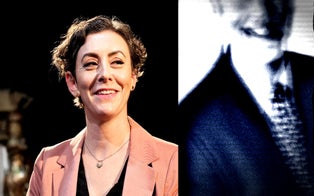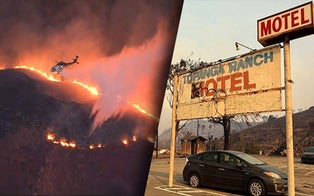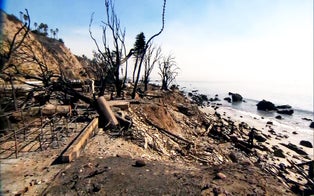Before the hostage situation, Malik Faisal Akram flew from Manchester, England, to New York City and traveled by bus to Dallas, Texas. There he stayed in homeless shelters, where he was reportedly able to buy a gun.
Across the country, houses of worship are still on edge after last weekend's armed hostage situation at a Texas synagogue.
Meanwhile, new details are emerging about the gunman's movements leading up to him holding four people hostage for 11 hours.
Malik Faisal Akram flew into New York's JFK airport from Manchester, England, on Dec. 29. He gave immigration authorities the address of an $80-per-night hotel.
Akram had a criminal record and was investigated by Britain's military intelligence for possible links to terrorism. He was arrested in 2016.
So why wasn't he on a watch list banning him from entering the U.S.?
“We have to get to the bottom of it as to how somebody with such a past was able to enter the U.S., come to New York City, stay a few days, make it out to Texas, get a firearm and be able to attack this synagogue,” former FBI agent and terrorism expert Manny Gomez said.
The timeline picks up Jan. 2, when Akram left the hotel in Queens and traveled by bus to Dallas, Texas.
He stayed at a homeless shelter, and a witness said he was dropped off by someone and they “hugged as they departed.”
On Jan. 6, Akram switched to another Dallas homeless shelter — the Union Gospel Mission. He reportedly bought a gun from another homeless man.
Last Saturday, Jan. 15, he took a rabbi and three worshippers hostage at the Congregation Beth Israel synagogue for what became an 11-hour siege.
During the standoff, he demanded for the release of the terrorist known as “Lady al-Qaeda,” who’s serving 86 years for attempting to kill U.S. soldiers.
Akram targeted Dallas, because it's close to the federal prison where she’s being held.
Hostage Jeffrey Cohen, a NASA engineer, says when Akram threatened to kill them, they knew they had to escape.
“He put his gun down to pour some soda, and that's the point that Rabbi Charlie threw the chair and yelled, ‘Run,’” Cohen said.
Akram was shot dead as the FBI hostage rescue team stormed in.
The hero rabbi, Charlie Cytron-Walker, spoke at a service of healing Monday night.
“And somehow together, we made it through that traumatic ordeal,” he said.
Homeland security officials warn that faith-based communities will continue to be targeted by extremists.
Related Stories




